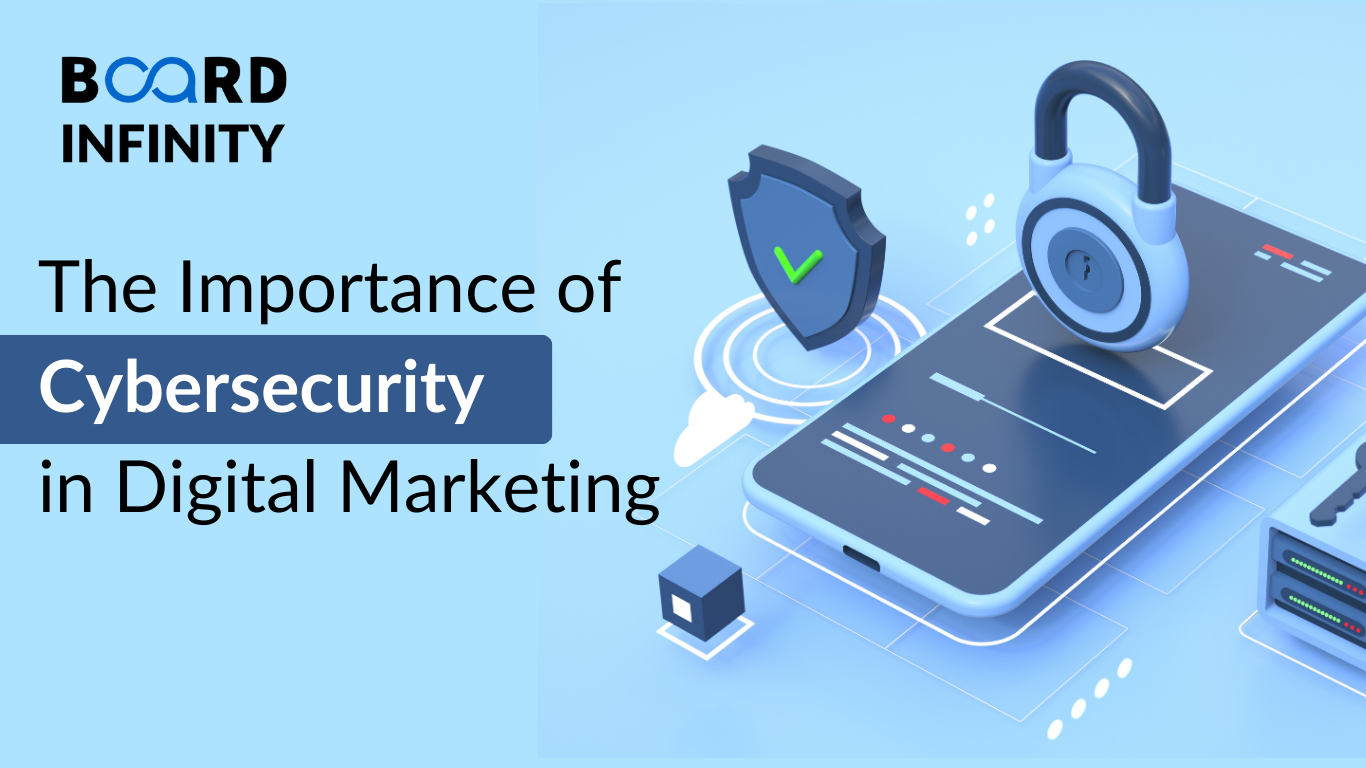
As companies are increasingly shifting their marketing efforts online, they must not only explore diverse marketing channels but also focus on social media PR, affiliate marketing, and cybersecurity. Neglecting cybersecurity can have severe consequences, derailing a company's digital marketing strategy and damaging its reputation.
Moreover, potential data breaches or cyberattacks may lead to financial losses, especially when faced with hefty data protection fines. In competitive and cutthroat industries, where public scrutiny is common, maintaining a strong cybersecurity strategy is crucial. Let's discuss the importance of cybersecurity in general and in digital marketing in particular.
The Importance of Cybersecurity in Digital Marketing
Data and insights from various marketing channels play a vital role in digital marketing, encompassing engagement, clicks, impressions, and more. From analytics to A/B testing, data empowers everything from campaigns executed on social media platforms to the overall SEO and content marketing strategy of your business.
Understanding customers and fine-tuning marketing campaigns thrive on this invaluable data, as campaigns are never truly complete. Adapting to changing times and industry trends, and adjusting campaigns accordingly, become imperative for businesses to avoid being left behind and becoming prime targets for cybercriminals.
Therefore, embracing flexibility and willingness to adapt not only benefits you from a digital marketing standpoint but also reinforces your cyber resilience.
1. Maintaining Trusting Relationships with Clients
Hackers consider email addresses, names, phone numbers, locations, and purchase history as valuable data. Customer information exposed in a breach can be utilized maliciously by bad actors, leading to erosion of trust in your brand, legal problems, and regulatory fines.
2. Protection of Trade Secrets
Hackers are eager to acquire the personally identifiable data contained in digital marketing platforms, including website content management systems (CMSs), social media analytics tools, email services, and integrated CRM software. Ensuring the security of these platforms, as well as the integrity of any integrations, is crucial.
3. Maintaining Reputation
If a company experiences a cyberattack, customers may question its security and competence. Just like if the attacker compromised their details, customers' perception of your brand reputation could shift if they discovered inadequate security controls in your systems.
4. Maintaining Traffic Levels
Instigated server attacks or malware can cause website crashes and outages, resulting in significant disruptions to traffic and campaigns. This can negatively impact metrics, while unsuspecting users may unknowingly enter their data into temporarily unsecured systems, risking the exposure of their personal or financial information. As demonstrated, compromised cybersecurity poses a threat to all digital marketing endeavors.
Strategies to Strengthen Cybersecurity in Digital Marketing
1. Conduct a Risk Assessment
Comprehensively assess vulnerabilities across digital systems, software, processes, and teams by conducting vulnerability assessments and penetration testing. Regularly patch all systems, devices, and software to address known weaknesses and mitigate immediate risks posed by malicious actors. When applicable, implement strong password policies, enforce stringent access controls, and utilize multifactor authentication (MFA).
2. Practice Data Encryption
Your cybersecurity strategy should be layered, that is, multi-level. Even if hacked, the lost data cannot be used against you or your customers if it is securely encrypted. When storing data, it must be encrypted.
Another vulnerability is the theft of data during transmission since it is transmitted by default in a publicly accessible form. This is especially dangerous on public Wi-Fi. In fact, public WiFi administrators see your history and data. To protect your internet history and data, you need a VPN. A good example is VeePN, which has 256-bit encryption: it is used by the military and in the banking sector. Today, hacking is almost impossible, since it takes decades even with the most modern equipment.
3. Raise Staff Awareness
Teams should be educated about the cyber threat landscape and emerging threats, ensuring awareness even among employees who may not be fully conscious of data protection. It is crucial to ensure that everyone is familiar with the recommended security practices for their data, as well as for the business and its consumers. Additionally, they should receive training on identifying phishing or social engineering tactics, as these types of cyberattacks often result from human judgment lapses.
What does Cybersecurity Do for Digital Marketing?
Properly considering the dangers of improper cybersecurity and investing in sufficient planning, your business can mitigate many risks while reaping the benefits of optimized digital marketing campaigns. By improving cyber resilience, your company can enjoy several advantages:
- Increasing customer loyalty and trust. Customers reward companies that protect their data with continued referrals and purchases.
- Competitive edge. Leading security practices differentiate companies in a crowded digital marketplace.
- Sustainability of marketing strategies. Containing cyber incidents quickly allows digital marketing to continue with minimal disruption or none at all, mitigating business disruption.
- Regulatory Compliance. Baseline security controls are required by many regulations and contracts from the outset.
- This is cheaper than dealing with existing leaks. Implementing good security saves money, as data breaches cost companies an average of $4.45 million according to IBM's 2023 report.
- Protecting digital assets. Safeguarding digital assets secures intellectual valuable property such as branding, products, infrastructure, and ad creative from theft.
Final Thoughts
Cybersecurity is important for a variety of reasons, and not just in digital marketing. In the marketing strategy, he is responsible for increasing customer confidence, protecting against additional costs, and preventing data leaks that fall under the concept of intellectual property. You can learn more about digital marketing practices in a digital marketing course, upon completion of which you will receive a certificate. If you already have deep knowledge in the field, you can expand it by completing a data engineering course. Honestly, you may not even realize how interrelated these specialties are.
